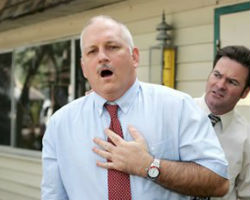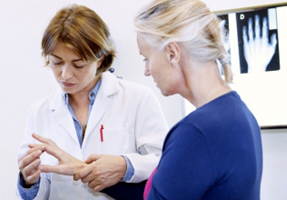How to Help Your Heart Cope with Severe Heat and Cold
A healthy person has a balanced of substances that maintain the tone of the vascular wall and keep it in a healthy state. But for people with a cardiovascular pathology, this balance is disturbed – vasoconstrictor substances are produced in excess and the production of vasodilator substances are lessened. Since adaptability is reduced, any stress, including climatic, causes unpleasant changes in the body of such patients resulting in high blood pressure, headaches and dizziness. Those with coronary heart disease may have more frequent attacks of retrosternal pains.
Summer heat

The best environmental temperature for the human body is 72°F (22 ºC). This temperature is recommended to be maintained in the room where a person sleeps. Sudden temperature changes are particularly dangerous for the health. At first the reserve forces of the body to help the heart work, but the resources are not limitless. That is why prolonged heat may worsen how a person with a weak heart and weather sensitivity feels. When it is very hot outside, people with heart problems experience an increase in heart rate and blood pressure, their peripheral vessels dilate, legs swell and the risk of blood clots becomes higher which leads to increased risk of stroke.
Here are some tips that could help you survive extreme summer heat:

- Give up alcohol and coffee. Any alcoholic beverage, including beer, may promote rapid development of coronary vasospasm.
- If you have any cardiac disease,do not stop taking the medicines prescribed by your cardiologist even if you think you feel better. Keep your sphygmomanometer close at hand so you can monitor your blood pressure.
- Replenish the loss of fluid. Carefully choose what to drink – you need ‘right’ electrolytes; your preference should be fresh juices, green tea and water. If you like mineral water, then choose the one that contains minimum sodium salts. Give up sodas and do not have too many icy drinks and ice-cream.
- Reconsider your diet – eat less meat and animal fats and more vegetables and dairy products. You should not overeat; the main rule is to have small and light meals.
- When it’s too hot outside, doctors recommend staying in an air-conditioned room (or at least in a room with a fan) for as long as possible as well as avoiding the sun and excessive physical activity. However, in order to avoid hypothermia one should not sit, let alone sleep, under the air conditioner. Sudden temperature changes are very stressful for the vessels and the heart. When going outside, a person with a healthy heart can quickly adapt, but someone with heart problems may face heart rhythm disturbance and even develop heart failure.
Bitter winter frost

When it is frosty outside, the body may become too cold due to increased emission of heat. The combination of low temperatures, high humidity and high wind speed is particularly dangerous. Moreover, due to the body’s reflex mechanisms the feeling of cold occurs not only in the area of its influence but also in seemingly far body parts. For example, if your feet are frozen, then you will inevitably feel that your nose is frozen too and the feeling of cold will appear in your throat leading to the development of acute respiratory infections.
If a person notices any unpleasant vascular responses when going outside into frosty air, it is recommended to limit the time spent outside. It is even more important for those who have angina pectoris. In winter, there has been a sharp increase in the number of cases of preinfarction angina, hypertensive crisis and cold angina attacks. Frosty air may cause spasm of the arteries supplying blood to the heart - the vessels contract, blood circulation worsens and that leads to the formation of blood clots.
Recommendations that help avoid the negative effects of the cold weather are as follows:
- You should not go out from the warmth of indoors into the outside cold quickly – contrasting changes in temperature may cause vasospasm. It is better to stand for some time near the front door before you go out.
- It is important to breathe through the nose – the air gets warmer while passing through the nose and throat which reduces the risk of a cold angina attack.
- Do not forget to take the preparations prescribed by your doctor.
- People suffering from high blood pressure are recommended to take valerian or motherwort tinctures in the morning and before going to bed and to thoroughly control their blood pressure.
- People with ischemic heart disease should see a doctor to adjust their treatment.It is particularly important for those who take beta-blockers. Such medications may cause vasospasm of the extremities and cold weather is fraught with frostbite.
- Those who have low blood pressure can start their day with physical exercise to stimulate blood circulation. Dark chocolate can also tone the body; carry it with you and occasionally eat several pieces.
What can you do if there is a sudden change in the weather?
- Limit motor activity;
- Avoid additional emotional and physical activity;
- Control your blood pressure and do not ever forget to take the medications prescribed by your doctor;
- Do not overeat and do not eat too much salt;
- Before going to bed, walk in the fresh air for at least 1 hour;
- Take an anti-anxiety medication;
- Never forget to take vitamins C and B;
- In the case of an increase in blood pressure, massage your neck and thoracic spine.









